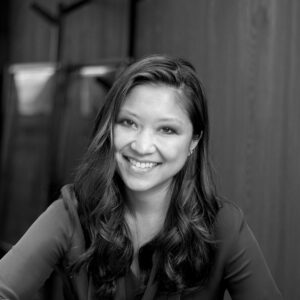PANDEMIC: See our latest coverage from across the country of cities, schools and students in crisis amid the shutdown. Scan the latest headlines.
No two experiences of this pandemic are the same, particularly when it comes to school communities.
It’s been months since COVID-19 shuttered districts across the country. In what would have been the final months of the 2019-20 academic year, tens of millions of students, educators and parents saw their lives upended overnight. Parents and siblings have been delegated as formal educators, teachers have become caretakers and saviors, and many students are still struggling to adapt as their homes have now been declared their new place of learning.
Still half of American school employees aren’t teachers. When the coronavirus pandemic hit the United States, millions of other workers integral to the American education system were similarly uprooted.
Now, as the country (and its school communities) continues to navigate its way through a disaster for which it was grossly unprepared, The 74’s Pandemic Reporting Initiative is setting out to track how life and work has changed for the diverse universe of characters who make our classrooms work.
From parents to teachers, counselors and even district warehouse managers, the pandemic has been a time of unprecedented hardships and challenges. Here are eight faces and stories from across the country that begin to capture the real story:
Still ‘in the trenches’
Most D.C. Public Schools buildings have stood vacant since the coronavirus sent teachers, students and staff home. The district’s warehouse is a rare exception.
Warehouse director Roger Asterilla and his 10 full-time employees still report to the behemoth 120,000-square-foot building in northeast D.C. every morning by 7:30 a.m. Asterilla says his team is one of only three DCPS departments — alongside food services and school security — still “in the trenches” and fully operating in person after the pandemic shuttered schools in March. The 47-year-old director of 11 years wasn’t surprised that his team was deemed essential. He calls them the “unsung heroes of DCPS.”
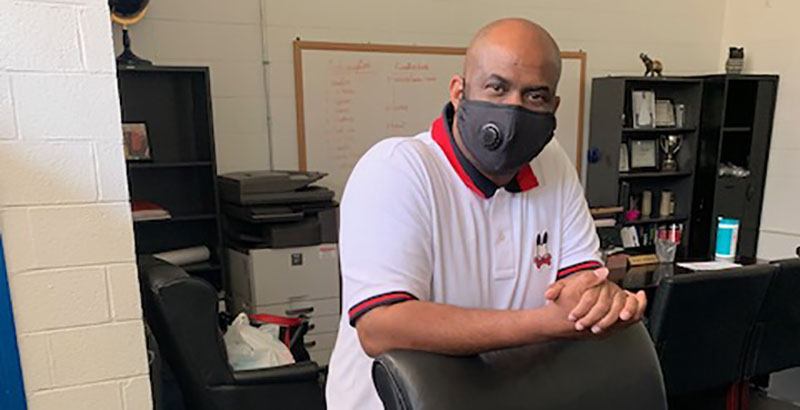
“We’re coming to work every single day despite what’s going on, and supporting any and every initiative that [DCPS] can think of,” Asterilla says.
Overwhelmed and ‘unable to help’
Originally from the Dominican Republic, Mercedes wakes up earlier now than she did before the pandemic to help her kids get set up for virtual learning. Then, a few days a week, the 47-year-old mother of three heads out to buy necessities, all while coping with being away from her eldest son and daughter-in-law, both of whom contracted the coronavirus.
Mercedes, an undocumented immigrant living in New York City’s East Harlem, shares a small apartment with her husband and their two younger children, Maria, 16, and Christopher, 9. Her oldest son, José, 24, lives in the Bronx with his wife. Although they have since recovered from COVID-19, not being able to see them has been difficult, Mercedes said, speaking through a Spanish translator.
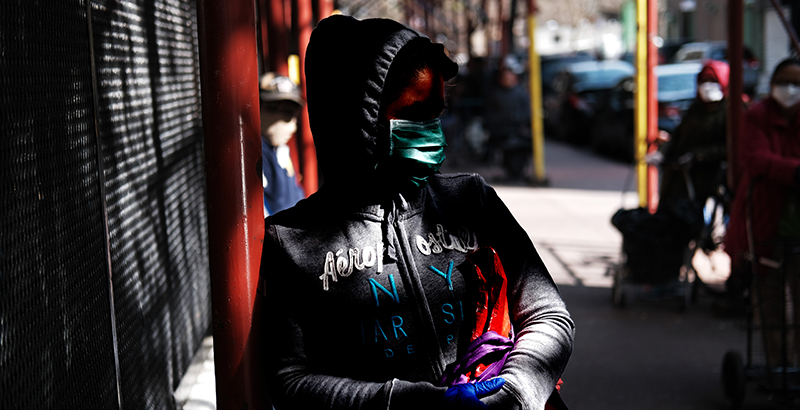
“After going through their day of virtual learning, they also get homework, and so that’s been the most challenging for me, because with the language barrier, I’m unable to help them the way I wish I could,” Mercedes said.
Grieving a loss, continuing to serve from behind the wheel
Every morning as the sun rose, Rosie Guadarrama walked laps around the parking lot full of yellow school buses at the San Antonio Independent School District transportation hub. In the three weeks since COVID-19 had shuttered schools, she had used that time to pray, listen to worship music and prepare herself for the intense day ahead.
With that on her mind, she boarded a bus and began her work day. Only she wasn’t shuttling kids to and from school, as she had been for six years. She was delivering food to families at six East Side apartment complexes.
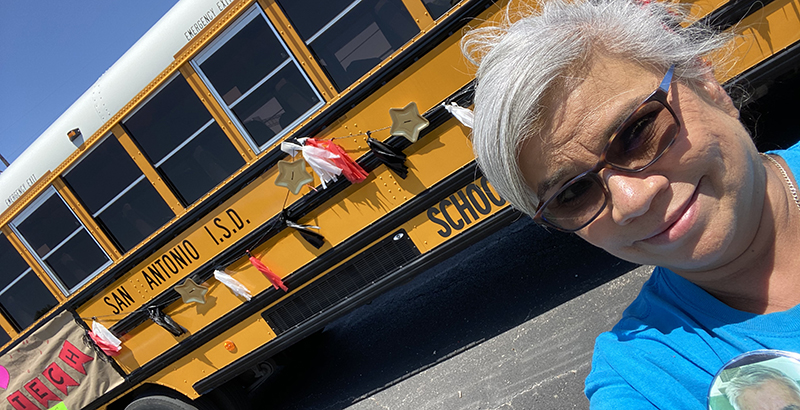
She also prayed for her 80-year-old father, who had developed a persistent cough and low-grade fever in late March. It was now the second week of April, and the cough had grown worse, said Guadarrama, 54. “I thought it was COVID.”
Missing out on the biggest day of his life
Caillou Allen will miss walking the stage for his diploma at his high school graduation next month. He’ll miss taking the stage more.
For the past three years, the senior at Cleveland’s Early College High School has been part of The Distinguished Gentlemen of Spoken Word, a troupe of African-American teens who perform dramatic interpretations of poetry and inspirational essays, and who have become a core cultural component of the Cleveland community. The Gentlemen have a tradition of performing at the graduations of each member, with the graduate giving a short speech or solo performance between group acts of poems by writers like Langston Hughes or Paul Laurence Dunbar.
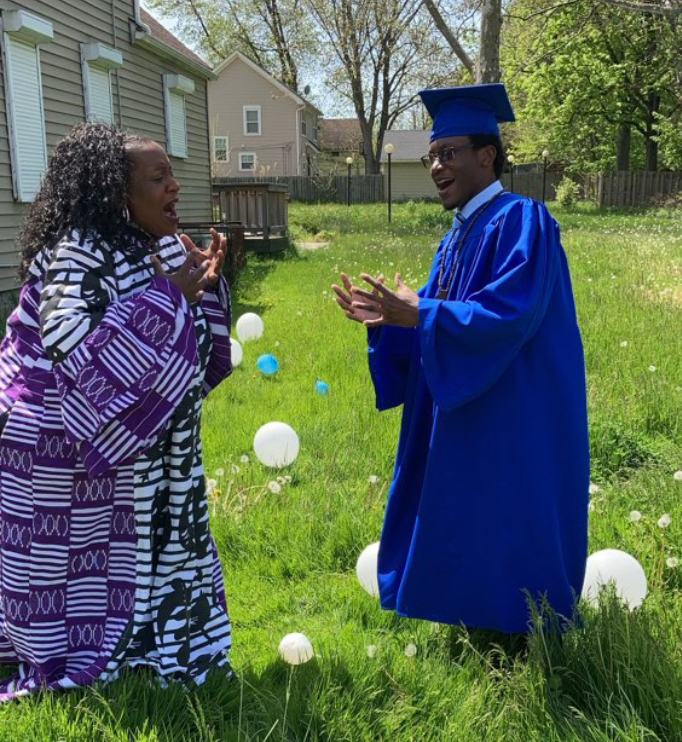
“I am not going to be able to do none of that,” said Allen, 17, who’s headed to Morehouse College in the fall.
Just graduating at all is an accomplishment for Allen, whose disciplinary record during his elementary school years had him bouncing from school to school. He was even expelled in the fourth grade, he said, for making a bomb threat, which forced him to repeat the year.
Doing the most she can
Before COVID-19 closed schools, kindergarten teacher Valeria Cox kept a grueling schedule. With five children of her own, an hour commute each way, and a houseful of pets and laundry, she was up every morning at 4:45 a.m. and often went to bed after midnight. Now, amid the pandemic, she is keeping her buoyant outlook, though life is moving just as fast, and she has had some frightening moments along the way.
Like many of the teachers at Mark Twain Dual Language Academy in San Antonio Independent School District, she was born and educated abroad. She was regularly on the floor or the playground equipment with her students, looking at bugs and admiring trees. She adds “-ita” and “-ito” to their names, a Spanish diminutive to convey affection. Her classroom was always full of hugs and excited conversation. The students, she explained, amplified the vitality of the classroom.
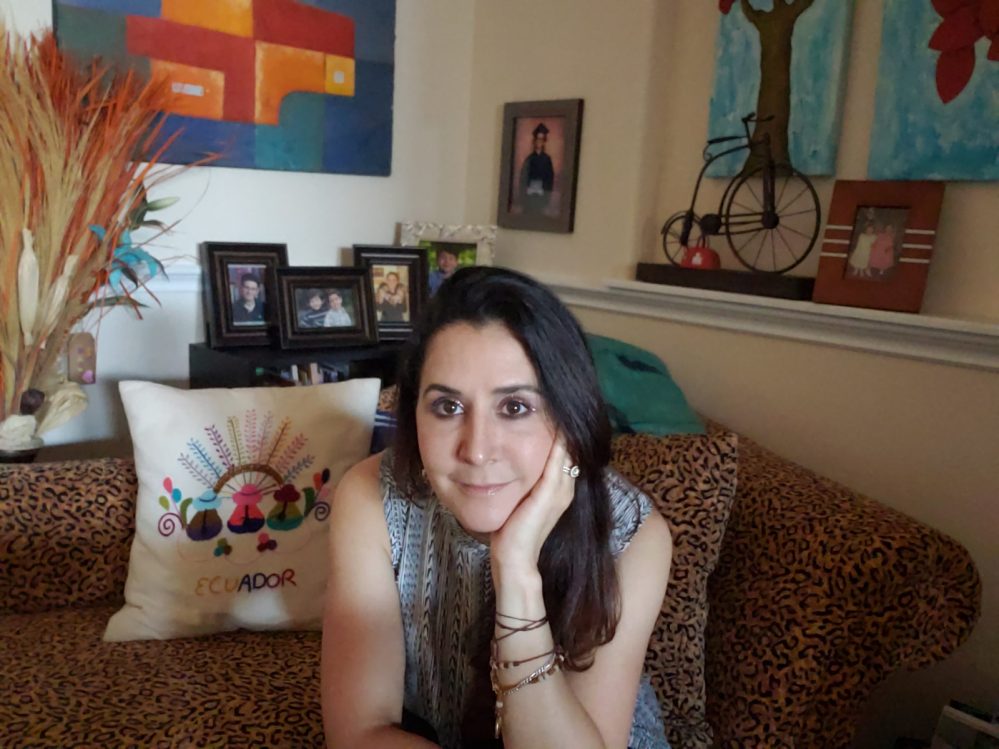
But now it’s difficult to simulate that energy over the daily 4 p.m. Zoom video call. Kindergarten, she says, is almost impossible to recreate virtually, because that year is about igniting a love of learning. She can hear the strain, almost a world-weariness, in her students’ voices. Sometimes, she said, it makes her cry.
“I realize how [the pandemic] has made them mature in many ways,” she said.
‘Working 24 hours around the clock’
For Shawnell Ware, a social worker at McDonogh 35 High School in New Orleans, the work day used to be from 8 a.m. to 4 p.m. Now, with school shut down and her city hit hard by the coronavirus, she’s available to her students, their families and her colleagues anytime, day or night.
On a typical school day before the pandemic, she checked in with students as they arrived at school, monitored attendance, observed classrooms, met with students individually, visited families at home and helped coordinate mental health care and other services for students. Now Ware, 51, does all that virtually, in addition to checking in with parents regarding their own mental health, working with teachers to modify assignments for students overwhelmed by online schooling, and tuning in to Zoom classes with students and meetings with her colleagues throughout the day.
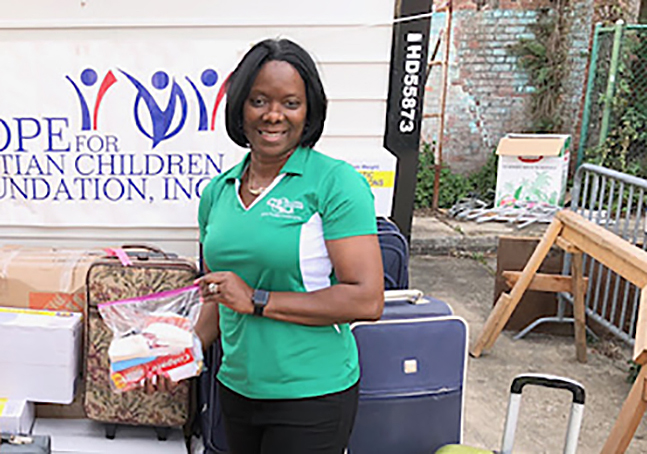
“I feel like I’m working 24 hours around the clock. Literally, I receive phone calls at 5 o’clock, 6 o’clock, 10 o’clock [at night]. I even had a student [who was experiencing] anxiety one morning call at 5 a.m.,” Ware said.
Doing whatever needs to be done ‘to help our patients’
At 8 a.m. sharp every weekday, Katrina Clark sits down in front of a computer, puts on her headset, types in a username and password, and settles in for eight and a half hours of phone calls.
Ten weeks ago, 55-year-old Clark, a Washington, D.C., public school nurse for 11 years, would have driven about 15 minutes on backroads to get to school by 7:55 a.m. By 8:30 a.m., she’d have medicated about three kids, typically with anticonvulsants, inhalers, ADHD medications or Tylenol. The rest of the day would be spent attending to stomach pains, fevers and scraped knees. To pay the bills, Clark now works for a call center from her home in nearby Anacostia, taking information from first responders who are exhibiting COVID-19 symptoms as part of the D.C. Department of Health’s contact-tracing efforts.
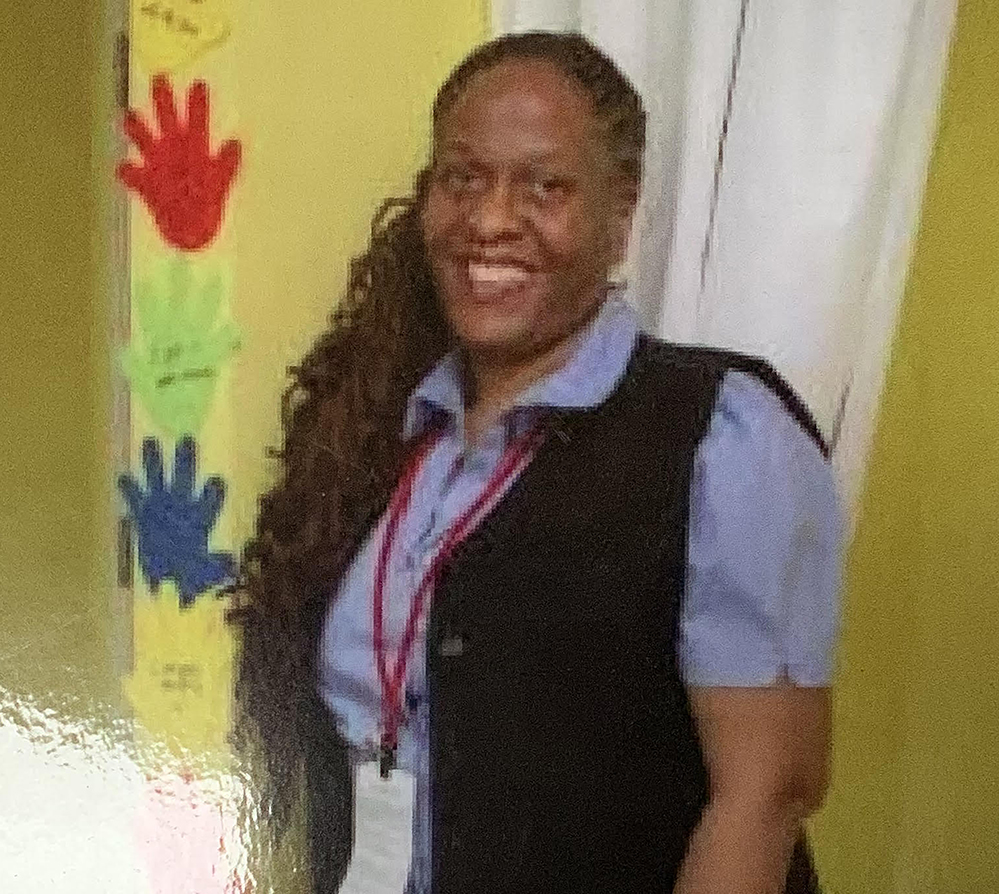
“Whatever [nurses] need to do to help our patients out, we’ll do it,” Clark says.
Delivering laptops, making sure ‘these kids got what they needed’
For several days in April, Principal Shaunamichelle Leonard packed dozens of computers into her Kia Sorrento, donned a mask and gloves, grabbed a bottle of hand sanitizer and plotted out a path to student homes on her GPS to deliver them.
The coronavirus forced the Cleveland school district to shutter schools March 13, and Leonard’s school passed out laptops April 8 to keep students connected through distance learning. As a product of that very district and as the first in her family to graduate from high school and college, Leonard, 48, is all too familiar with the challenges her students face.
She knew work and child care schedules or lack of transportation could keep families from picking up the laptops that the school was handing out. So she was not surprised when a stack of nearly 30 laptops, set aside for individual students, were still unclaimed.
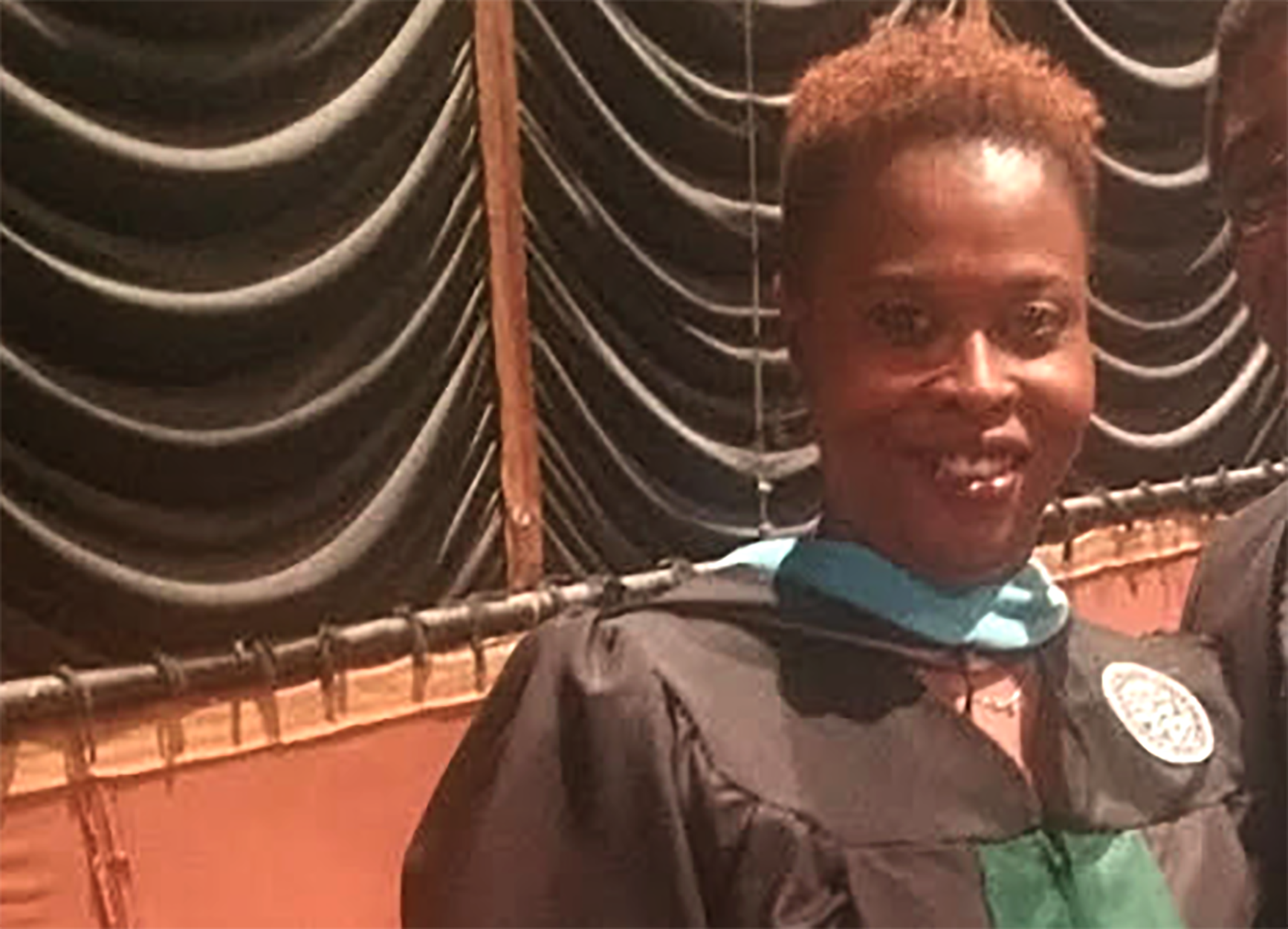
“I was just trying to do what was right,” the New Tech West High School principal said. “I was armed with everything I needed and I just wanted to make sure these kids got what they needed.”
PANDEMIC: Our latest coverage from across the country of cities, schools and students in crisis amid the shutdown. See today’s headlines right here.
Get stories like these delivered straight to your inbox. Sign up for The 74 Newsletter
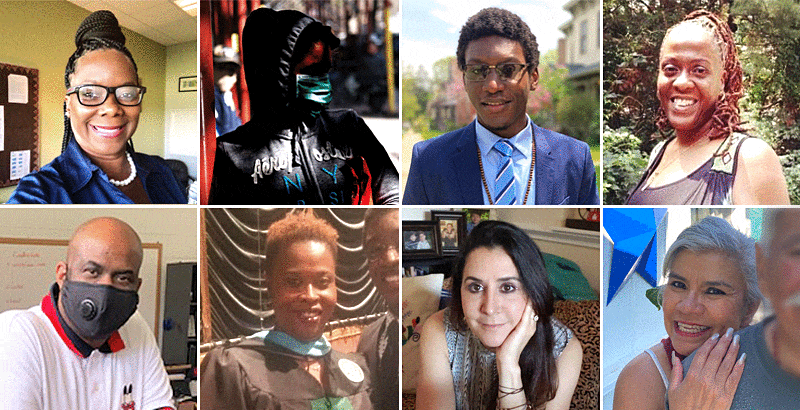

;)
